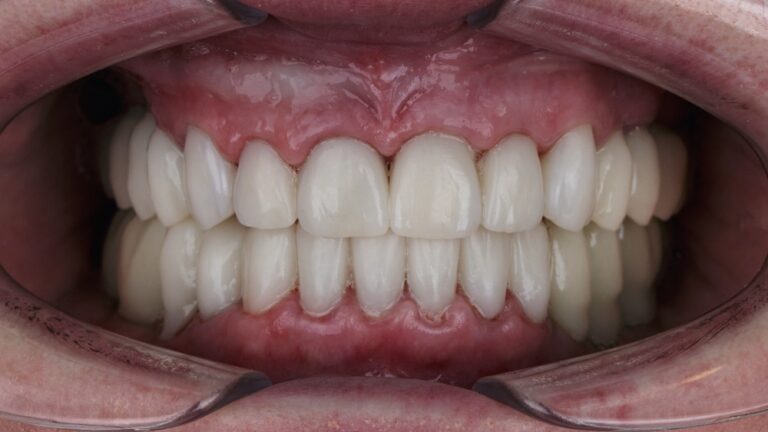What is neem oil and what are its benefits?
Neem oil is extracted from the seeds and fruits of the neem tree (Azadirachta indica), which is native to India. It has been used extensively in Ayurvedic medicine and folk remedies for centuries due to its many beneficial properties.
Some of the key components of neem oil that contribute to its effects include:
- Azadirachtin - This is the main biologically active ingredient in neem oil that demonstrates strong antimicrobial, antifungal, antibacterial and anti-inflammatory properties. Research shows azadirachtin is effective at inhibiting the growth and spread of common oral pathogens like Streptococcus mutans that cause dental decay and Porphyromonas gingivalis implicated in periodontal disease. Azadirachtin also exhibits anti-ulcer activity and can promote healing of mouth ulcers and canker sores.
- Nimbidin - This bitter compound found in neem oil has anti-inflammatory, analgesic and antiulcer effects. In the mouth, nimbidin can help reduce pain and swelling associated with gum inflammation, ulcers and other oral lesions. It blocks inflammatory cytokines.
- Fatty acids - Neem oil is high in fatty acids like oleic acid, linoleic acid, stearic acid and palmitic acid. Topical use of these fatty acids help accelerate wound healing in the mouth by stimulating collagen synthesis, increasing blood flow to the gums and strengthening the local immune response against oral bacteria.
- Vitamin E - Neem oil contains vitamin E which acts as a natural antioxidant. It protects against oxidative damage and facilitates tissue healing. Vitamin E also enhances the activity of white blood cells that defend against infection.
In addition to the above components, neem oil also demonstrates natural analgesic and sedative action on pain nerves when applied topically. It has been used traditionally in various dental treatments ranging from oral ulcers to gingivitis. Research indicates neem oil can:
- Inhibit plaque formation and adhesion of bacteria on teeth that cause tooth decay and gum disease
- Reduce inflammation, bleeding, swelling and tenderness in gingivitis and periodontitis
- Treat oral thrush caused by Candida fungus due to its potent antifungal action
- Speed up healing of mouth ulcers, canker sores and gum abscesses
- Alleviate pain and discomfort from various oral lesions and gum damage
- Provide relief from toothache due to its mild numbing effects
- Freshen breath by neutralizing odor causing bacteria and germs in the mouth
So using neem oil seems to be beneficial for protecting oral health as it fights infections, reduces inflammation, aids healing and strengthens the gums. But it should be used with care.
Is it safe to apply neem oil directly on gums?
When used topically in small quantities, neem oil is considered relatively safe for most people. However, pure neem essential oil is very potent. Diluting it with a carrier oil helps minimize risk of side effects when applying on gums.
Some important precautions to keep in mind:
- Irritation - Undiluted neem oil or using large amounts can sometimes irritate sensitive gums. This may cause redness, stinging, burning or soreness in some cases. To prevent this, neem oil should be adequately diluted with coconut, olive or almond oil before applying to gums.
- Allergic reactions - As neem oil contains many biologically active compounds, some individuals may be allergic to it. Allergic symptoms when applying neem oil can include hives, rashes, swelling, and itching. Doing a patch test before wide use is recommended.
- Numbness - Frequent use of neem oil can numb the gums due to its anesthetic component azadirachtin. This numbness usually resolves after stopping use. But it’s best to use neem oil topically only 2-4 times a week.
- Tooth discoloration - Rubbing neem oil directly on teeth may lead to slight yellowish-brown discoloration over time as it permeates enamel. Hence it should only be applied carefully on the gums and not the teeth.
- Ingestion - Swallowing neem oil can be toxic and cause side effects like vomiting, diarrhea, dizziness. Avoid applying neem oil near the throat region to prevent entry into digestive tract.
Thus, diluted neem oil can be applied safely on gums using precautions to minimize adverse reactions. Only small amounts are needed to get therapeutic effects on the gums and oral cavity.
How to use neem oil for gum health?

Neem oil can be used conveniently at home to promote gum health in various ways:
1. Neem oil mouth rinse
Add 2-3 drops of neem essential oil to half a cup of warm water. Swish this dilute neem mouthwash around the mouth for 1-2 minutes, reaching all surfaces of gums, teeth, tongue, inner cheeks and the back of throat. Spit it out and rinse mouth with plain water. This can be done once or twice daily.
The active compounds in neem get absorbed by the gum tissue to combat bacteria, reduce inflammation and prevent plaque buildup. For those with dentures, soaking dentures in neem oil mouthwash disinfects them before wearing.
2. Neem oil gum massage
Dilute 2-3 drops of neem essential oil in 1 teaspoon coconut or olive oil. Dip your finger in this mixture and gently massage gums in circular motion for a couple of minutes. Focus on areas that are tender, swollen or bleed easily.
Massaging with diluted neem oil improves blood circulation in gums, reduces swelling and inflammation, strengthens gums and combats oral pathogens.
3. Neem bark powder + honey
Take 1/2 teaspoon neem bark powder and mix with 1 teaspoon raw organic honey to form a paste. Apply this on gums and massage lightly for a minute. Allow it to sit for 5 minutes before thoroughly rinsing mouth with water.
Neem bark powder provides active antibacterial compounds that along with antimicrobial honey gives a synergistic healing and remineralizing effect.
4. Neem leaf powder gum application
Sprinkle neem leaf powder directly on gums and rub gently for a minute. Neem leaves tend to be milder than the oil or bark and provide cleansing benefits without excessive bitterness.
Rubbing neem leaf powder on gums removes bacteria sitting on the gum line and leaves the mouth feeling fresh.
5. Add neem oil to toothpaste
Add 1 drop of neem essential oil to a pea-sized amount of regular toothpaste. Brush teeth and gums as normal. This allows the neem oil to mix with saliva and spread throughout the oral cavity. Avoid applying directly on teeth.
This provides added antibacterial and anti-inflammatory neem oil benefits alongside regular toothpaste to manage problems like gingivitis, bleeding and receding gums.
What’s the recommended frequency of use?
For maintaining good gum health:
- Neem oil mouth rinse can be used once daily
- Massaging gums with diluted neem oil 2-3 times a week is sufficient
- Using neem bark or leaf powder 2-4 times a week provides benefits
- Adding a drop of neem oil to toothpaste can be done daily
In case of active gum infection, swelling, ulcers or other oral problems, frequency can be increased to 2-3 times a day until condition improves.
But use should be discontinued if stinging, burning or other worrisome symptoms develop. Excessive use of undiluted neem oil may irritate sensitive gums. Moderation is key.
Overall, regular use of diluted neem oil alongside oral hygiene habits like brushing, flossing, tongue scraping provides additive gum health benefits with minimal risks.
Are there any risks or side effects?

When used appropriately in moderation, neem oil has a relatively good safety profile. But some potential side effects to be aware of include:
- Mild burning or stinging if applied undiluted, especially on irritated gums
- Allergic reactions in some individuals - rash, hives, itchy skin, swollen lips/gums
- Numbness or loss of sensation in gums and mouth with very frequent use
- Tooth staining with yellowish-brown discoloration if applied directly on teeth
- Nausea, vomiting, dizziness if neem oil is swallowed
- Lowering of blood sugar levels in diabetics due to its hypoglycemic effect
Pregnant and breastfeeding women should avoid neem oil due to insufficient safety data and hormonal effects.
Those taking medication or with medical conditions must consult their doctor before using neem oil remedies for dental care.
While rare, anyone experiencing bothersome symptoms with neem oil use should stop and seek medical advice if necessary. Mild side effects usually resolve rapidly on discontinuation.
Overall, neem oil provides antimicrobial and anti-inflammatory benefits for gum health when used in moderation. But caution is warranted.
What are some alternatives to neem oil for gum health?
Some natural alternatives to using neem oil for gum care include:
- Aloe vera - Soothes inflamed gums and promotes healing of mouth ulcers due to its anti-inflammatory effects.
- Green tea - Rinsing with green tea or applying a soaked tea bag provides antioxidants that reduce gum inflammation and bleeding.
- Coconut oil - Contains lauric acid with antimicrobial effects to combat plaque bacteria and reduce gingivitis. Also soothes irritated gums.
- Clove oil - Has pain relieving, antimicrobial and antiseptic properties that help gum pain and oral ulcers.
- Myrrh oil - Demonstrates anti-inflammatory and antiseptic benefits that support gum healing.
- Baking soda - Helps balance oral pH, removes tartar buildup and prevents gum irritation and infection.
- Hydrogen peroxide - Can be diluted and used as a mild antiseptic mouth rinse to manage gum infections.
- Salt water - Rinsing with warm salt water draws out fluid to reduce gum swelling and inflammation.
Proper oral hygiene through brushing, flossing, professional cleanings and managing health conditions are also key for gum health. A balanced whole food diet optimizes the body’s natural defenses.
Frequently Asked Questions
1. Is it OK to rub neem oil directly on bleeding gums?
No, it’s best to dilute neem oil before applying on actively bleeding gums to avoid further irritation. Mix 2-3 drops of neem essential oil in 1 teaspoon of coconut or olive oil. Then dab this very gently onto bleeding gums using a clean finger or cotton swab. This will promote healing without stinging.
2. Can neem oil reverse gum recession on its own?
Neem oil cannot reverse actual gum recession or regrow lost gum tissue on its own. Professional procedures like gum grafting are needed for that. However, neem oil helps control inflammation and infection to prevent worsening of gum recession when used alongside good oral hygiene.
3. Is neem oil effective for painful gum boils?
Yes, research indicates neem oil is effective for the Porphyromonas gingivalis bacteria implicated in painful gum boils. Using neem oil mouth rinse 2-3 times a day can help clear gum boil infection and provide analgesic benefits. But medical treatment may be needed for severe cases.
4. Will rubbing neem oil eventually whiten my teeth?
No, neem oil does not have any inherent teeth whitening properties. Prolonged use may actually slightly stain or discolor teeth over time. Neem oil is beneficial for gum health but should not have direct contact with teeth to avoid such staining.
5. Can I leave neem oil on my gums overnight?
It’s not recommended to leave neem oil sitting on the gums overnight. Prolonged contact beyond 5-10 minutes increases risk of gum irritation, tissue damage and side effects. Limit use of neem oil gum treatments to once or twice daily for 1-5 minutes and rinse mouth well after.
Conclusion
In conclusion, neem oil derived from the prized neem tree is valued in alternative medicine owing to its wide ranging therapeutic effects. For oral health, it contains active compounds like azadirachtin and fatty acids that demonstrate strong antimicrobial, anti-inflammatory and healing actions when applied topically on gums.
Using diluted neem oil sparingly under the gums helps fight bacteria, reduces gum bleeding, swelling and pain, combats oral ulcers and supports tissue repair. But caution is warranted and side effects like numbness, burning or allergy may rarely occur with inappropriate use. Neem oil can be a beneficial natural supplement to daily oral care regimens when used in moderation. But severe gum problems warrant proper dental evaluation and treatment.






